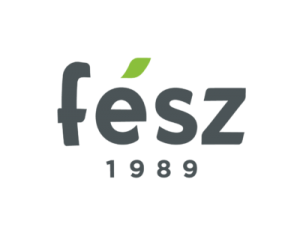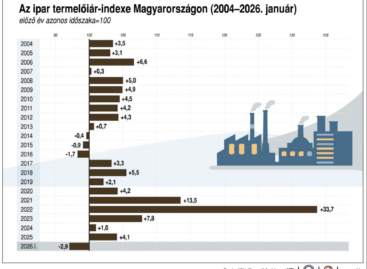‘Let’s not make our dreams the foundation stone of development projects!’
The pandemic showed that the food industry is crisis-resistant. Our magazine interviewed Tamás Éder, president of the Federation of Responsible Food Manufacturers (FÉSZ).

![]() What was 2020 like for the food industry?
What was 2020 like for the food industry?

Éder Tamás
elnök
FÉSZ
– Preliminary data from the Central Statistical Office (KSH) say that the food industry’s output increased by 1 percent in 2020. This data shows that to a certain extent the food industry is crisis-resistant, as the country’s economic performance dropped due to the pandemic. Domestic sales didn’t change from the previous year’s level, but export sales were up 3 percent.
![]() What can you say about the sector’s profitability?
What can you say about the sector’s profitability?
– Estimation is that profitability stagnated, but there are big differences between various segments. Sales prices in the industry were 7 percent higher than in 2019, but the production price index in agriculture was also up 7 percent and the prices of other product ingredients elevated too.
![]() Which were the most successful segments and product categories and which ones suffered the most?
Which were the most successful segments and product categories and which ones suffered the most?
– Fruit and vegetable processing was at a standstill. Juice production fell by almost 10 percent. In the meat sector not only the coronavirus caused problems, but also the African swine fever and the bird flu. Because of the former the meat industry lost one of its most valuable foreign markets, the Far East. At annual level this means a more than HUF 10 billion export sales loss. The drink production segment contracted by 6 percent.
![]() Were new rules introduced that made an impact on the food industry?
Were new rules introduced that made an impact on the food industry?
– There wasn’t really time to adopt new regulations, because of the pandemic. The food book system started with a new structure last year. Work began on widening the scope of the Quality Food from Hungary (KMÉ) trademark system. Last year’s most important work was done in the field of transposing the European Commission’s ‘Farm to Fork’ strategy into national law.
![]() What about the capital situation and ownership structure? Is there a concentration process taking place?
What about the capital situation and ownership structure? Is there a concentration process taking place?
– It is rather likely that the pandemic generated a concentration process in 2020. Last year was a good one for those enterprises that supply retailers; at the same time the partners of HoReCa businesses were facing big difficulties. Obviously this led to some enterprises having to sell their companies. We will see whether this process slows down after the reopening.
![]() How did the pandemic affect the food industry last year and what can we expect in 2021?
How did the pandemic affect the food industry last year and what can we expect in 2021?
– Companies partnering with retailers could realise growth, as part of the food not consumed in HoReCa and mass catering turned up in home consumption. Mainly micro- and small businesses suffered from the closure of the HoReCa sector.
![]() What about investment projects and funding schemes?
What about investment projects and funding schemes?
– Last year was a bit better than the average in terms of total investment, as the majority of EU grant programmes of the previous budgetary period were implemented or completed last year. Funding decisions were made rather slowly, so winners could only start their investments late and production has only commenced recently.
![]() Did the sector make progress in innovation or efficiency in the special conditions of 2020?
Did the sector make progress in innovation or efficiency in the special conditions of 2020?
– In the first round development projects should target efficiency and competitiveness increasing. Hopefully the influx of money will also result in innovative development projects, where the R&D part of programmes is also strong. I also hope that there will be brave food businesses which invest in new-type food products too.
![]() What are your predictions for 2021?
What are your predictions for 2021?
– I am moderately optimistic. The government has promised that agri-food businesses will get the funding quickly. If this money is used well – and we won’t make our dreams the foundation stone of development projects – and development will be based on well-made business plans and realistic market expectations, the sector can make huge progress. //
Related news
KSH: in January, the number of guests increased by 5.3 percent and guest nights by 3.6 percent compared to a year earlier
🎧 Hallgasd a cikket: Lejátszás Szünet Folytatás Leállítás Nyelv: Auto…
Read more >Related news
No matter how much you save, food and gadgets always take the money
🎧 Hallgasd a cikket: Lejátszás Szünet Folytatás Leállítás Nyelv: Auto…
Read more >Historic price reduction at ALDI
🎧 Hallgasd a cikket: Lejátszás Szünet Folytatás Leállítás Nyelv: Auto…
Read more >








